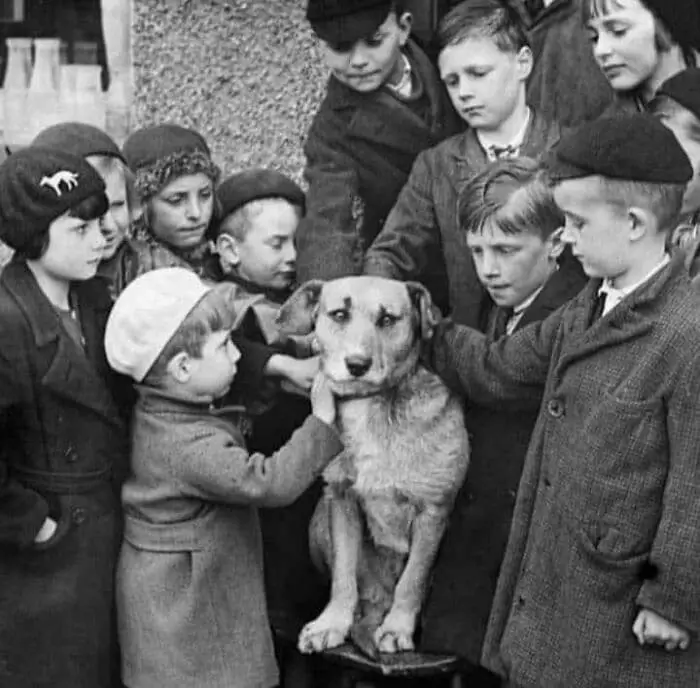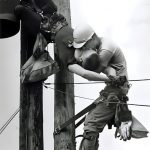Do you ever find yourself captivated by old photographs? There’s something magical about peering into the past through the lens of a camera. But have you ever stopped to think about why we’re drawn to these images more than written history?
It turns out, there’s science behind it. Our brains process images a whopping 60,000 times faster than text. That means when we see a picture from history, we’re absorbing information in a flash. It’s like taking a fast-track journey through time.
That’s where online communities like Historical Pictures come in. With just a scroll, you can immerse yourself in captivating snapshots of the past. From vintage cityscapes to candid moments frozen in time, each picture tells a story waiting to be discovered.
The group’s motto, “Going back to the past. Exploring Earth’s true history,” encapsulates the spirit of exploration that drives its members. Together, they delve into the depths of history, uncovering hidden gems and shedding light on forgotten tales.
So why not join the adventure? Step into the world of yesteryear, where every picture is a portal to another time. Let’s explore the past together, one frame at a time.
#1. Petre Mshvenieradze, Tbilisi-born Olympic Soviet water polo player, with his grandson 1950.
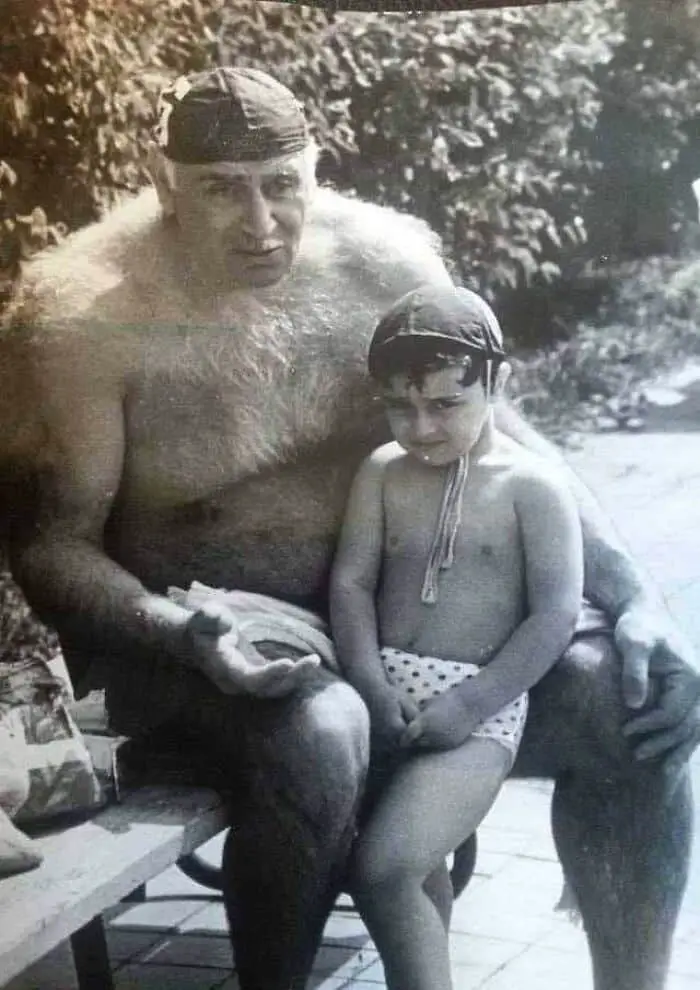
#2. Young girl Kiowa tribe, Oklahoma, 1894
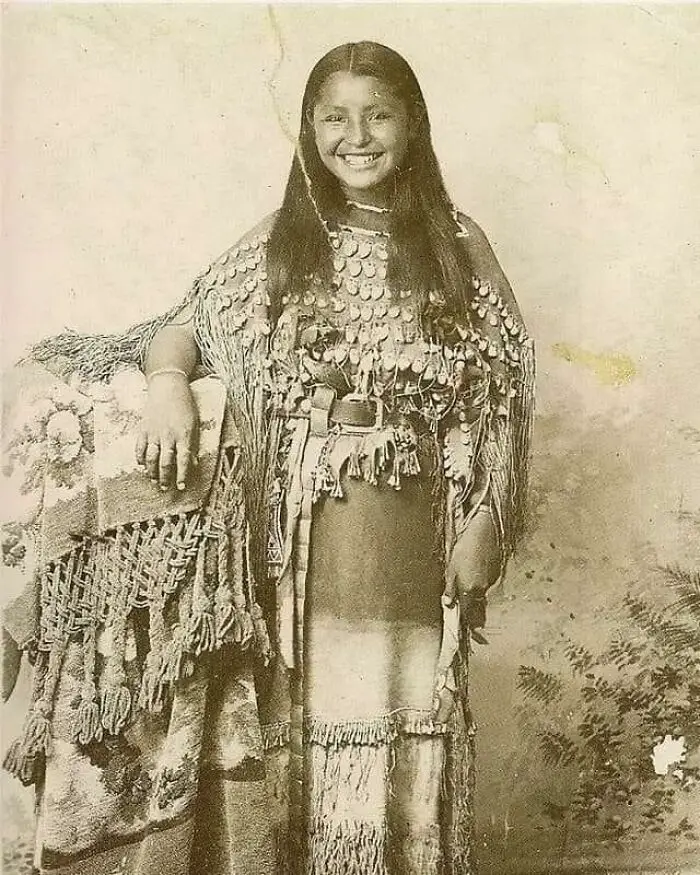
#3. Ostrich reads the newspaper of the caretaker.
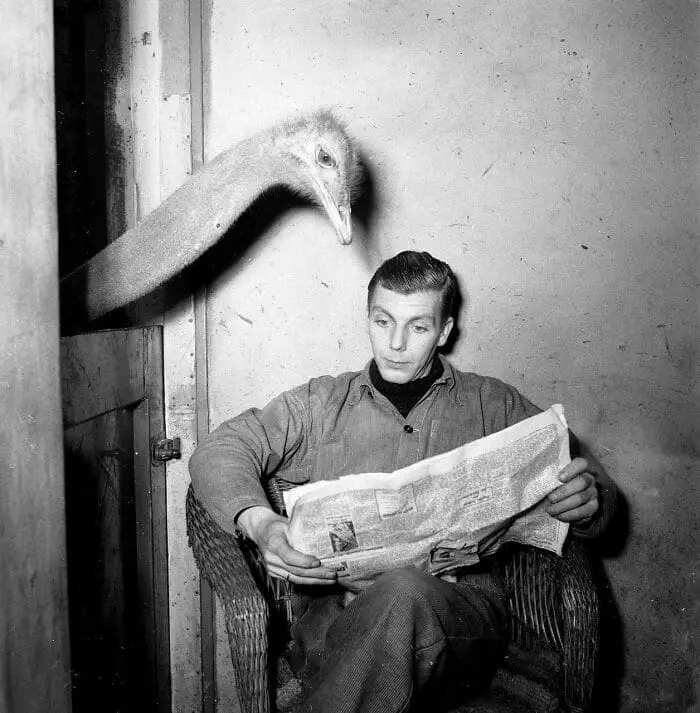
#4. Austrian Boy Receives New Shoes During WWII.
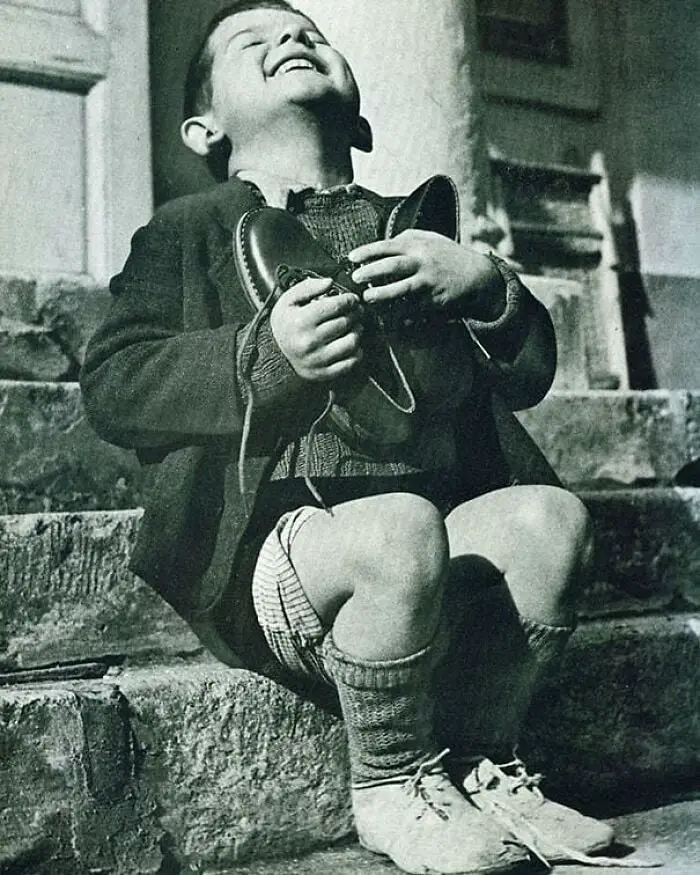
#5. Jesse Owens breaking the World record 200 – meter race at the 1936 Olympic Games of Berlin
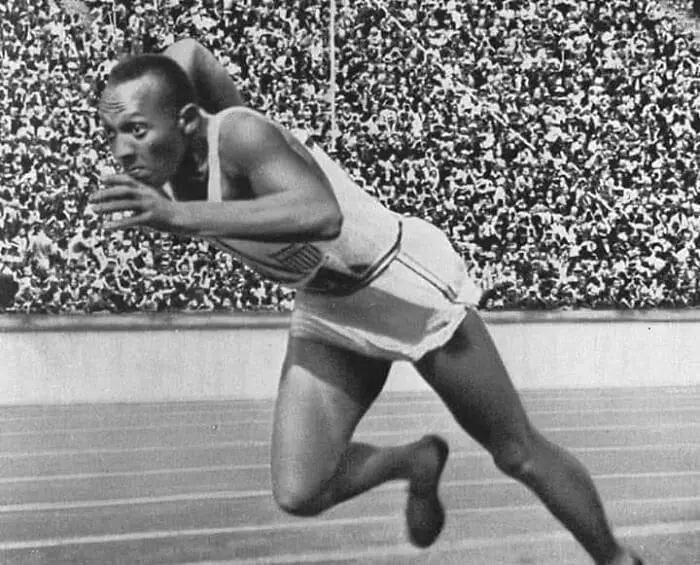
#6. Child labor strike in Philadelphia, 1902
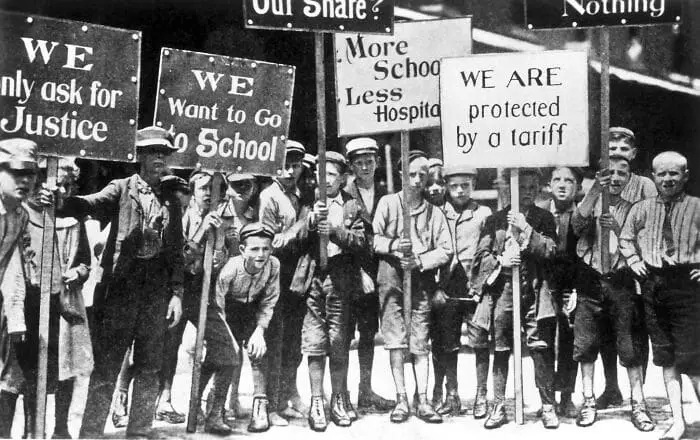
#7. 19 year-old Shigeki Tanaka was a survivor of the atomic bombing of Hiroshima and he then went onto win the 1951 Boston Marathon. The crowd was silent.
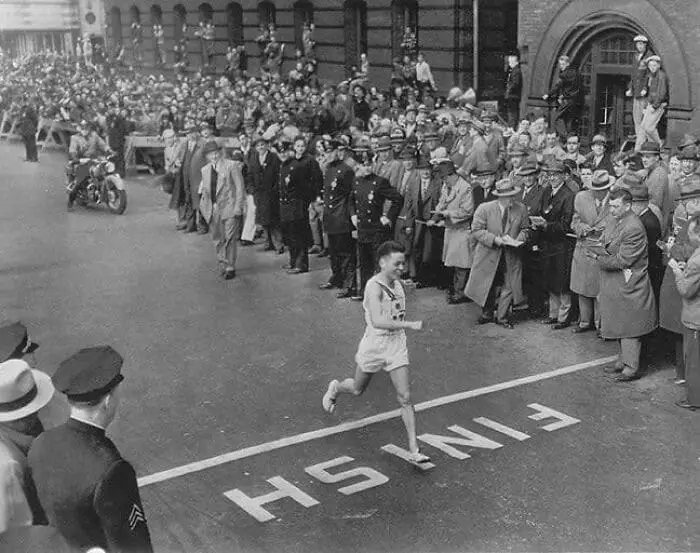
#8. In 1941, Slovenian Albina Mali-Hočevar joined the People’s Liberation Movement at the age of 16. She was wounded twice as a resistance fighter at the age of 17. For the remainder of the war, she worked as a nurse.
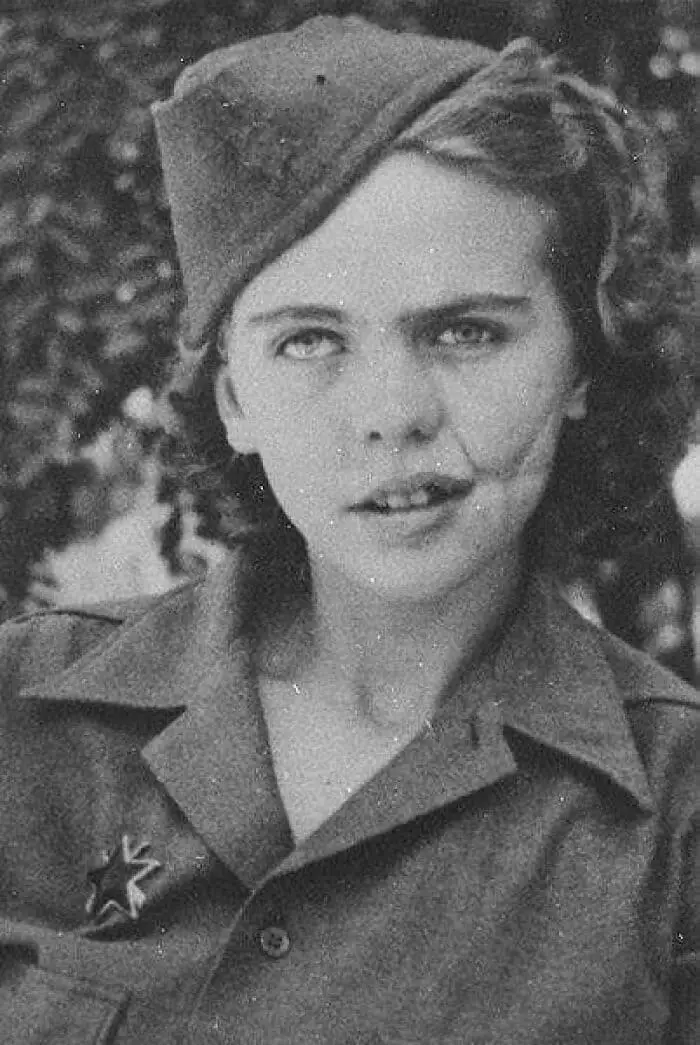
#9. U.S. cavalry soldiers pose in front of a sequoia in Yosemite known as “Grizzly Giant,” in 1900. This tree still stands today.
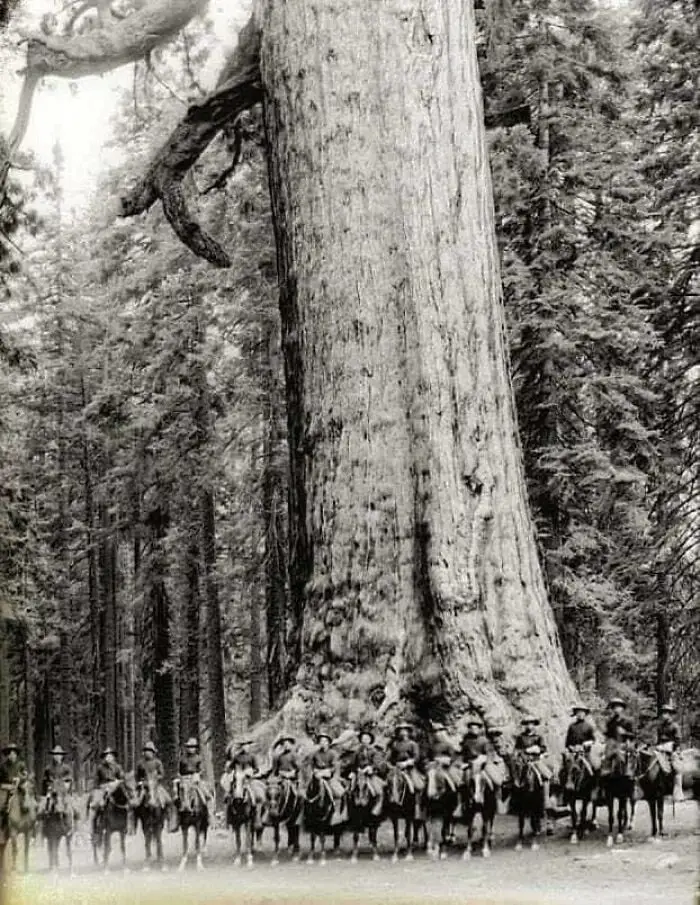
#10. An exotic dancer demonstrates that her underwear was too large to have exposed herself, after undercover police officers arrested her in Florida! 1983
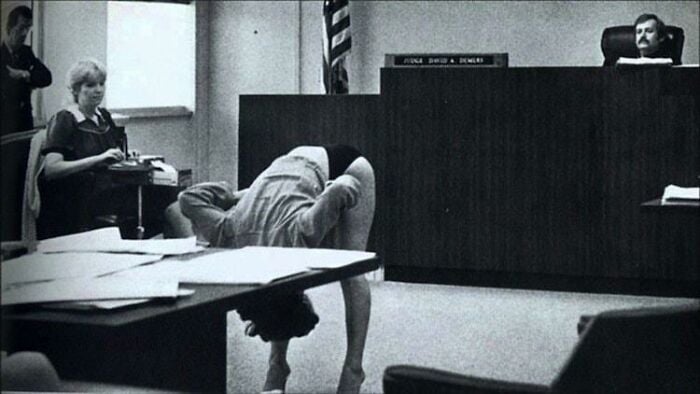
#11. The 3,000 men who helped build the Chase Manhattan Bank in New York City pose for a photo near the end of the constructional work, Aug 19, 1964.
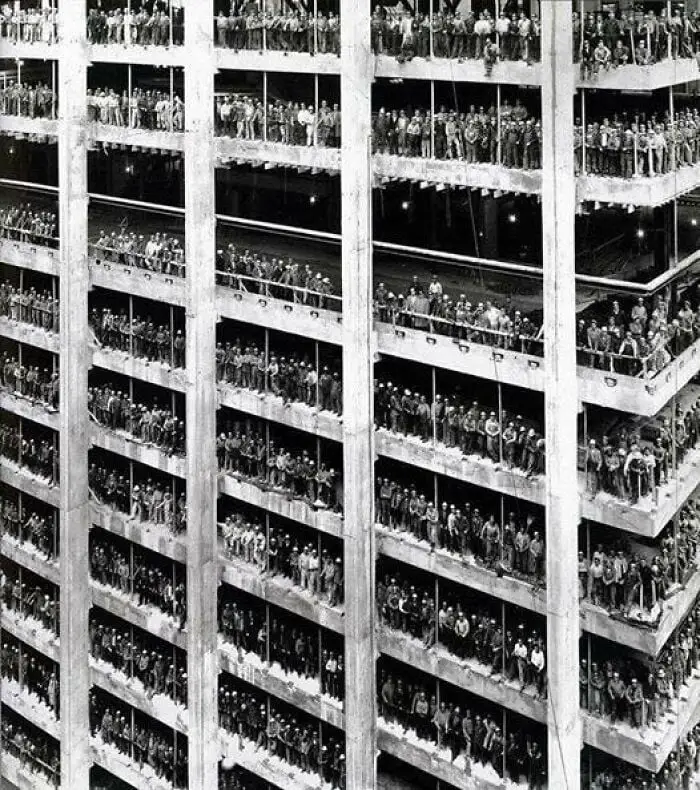
#12. A farmer paints stripes on her cow to increase its visibility at night and prevent car accidents should it wander onto the road during blackout conditions.
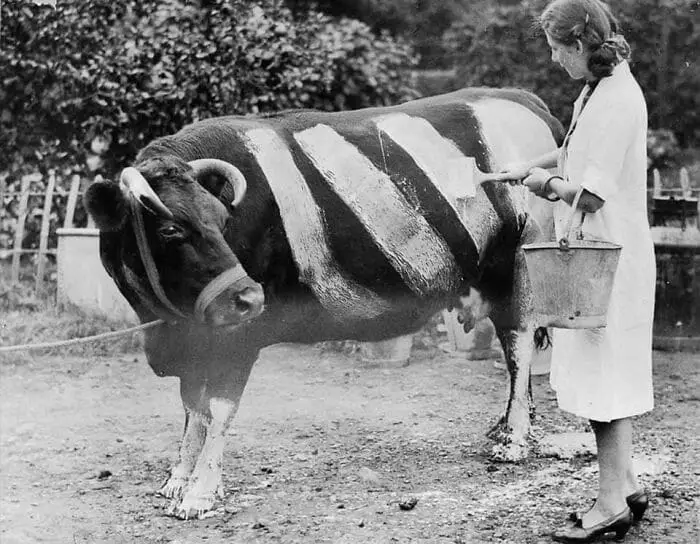
#13. The return of a German soldier from Soviet captivity. He was taken to the war when his son was 1 year old. Germany. 1956
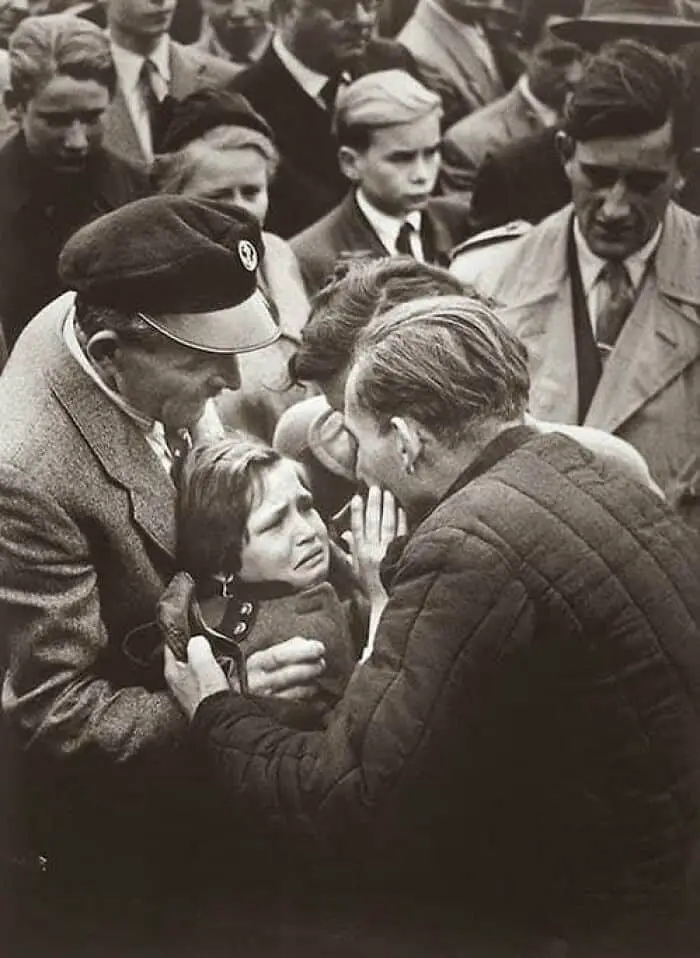
#14. New York City. 1957. A Llama in Times Square.
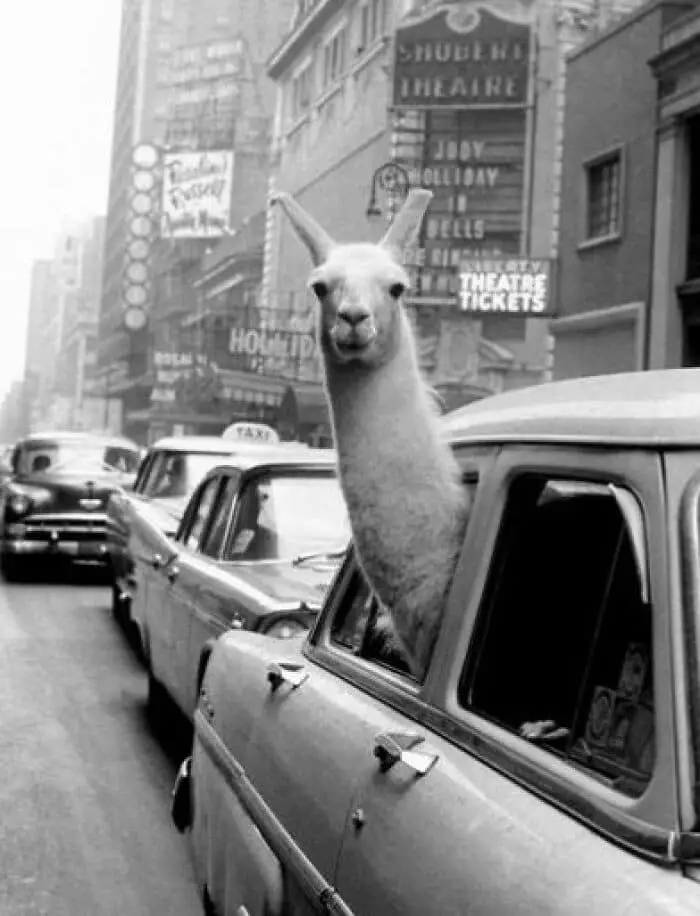
#15. Social distancing from 1953. A child with measles sits and eats alone during a Coronation party in Chelsea, England.
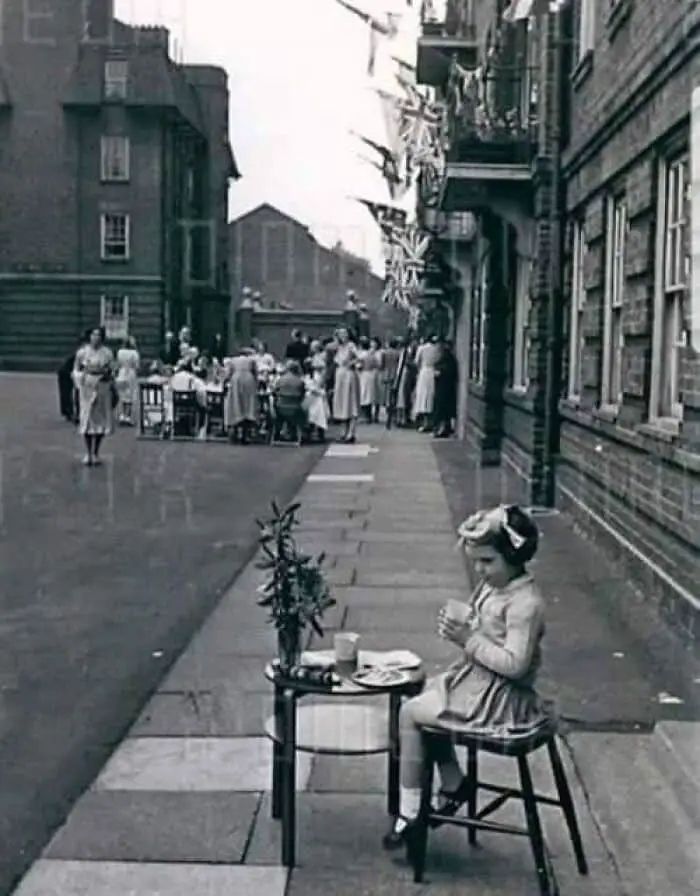
#16. The original Moulin Rouge the year before it burned down in Paris , 1914 . Photograph Albert Kahn
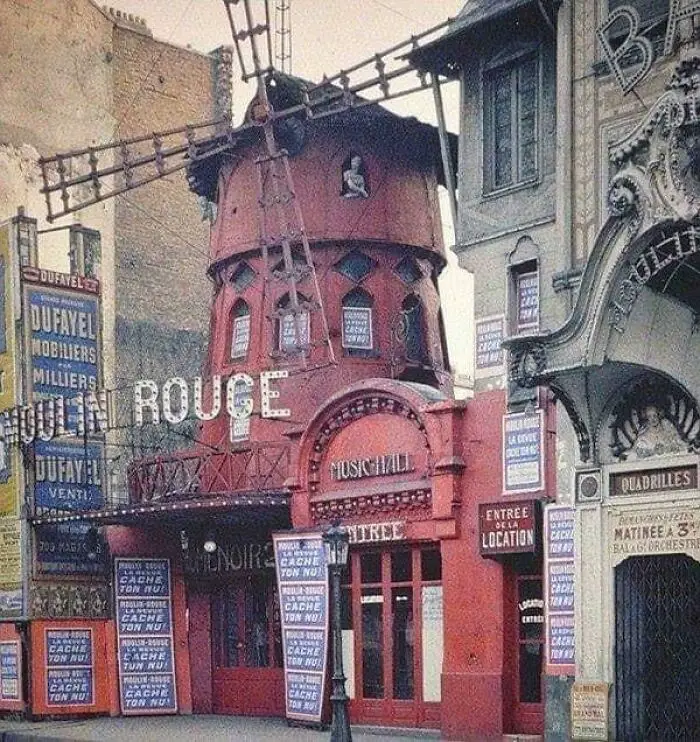
#17. One of the first-known photographs of Niagara Falls captured by British chemist Hugh Lee Pattinson in 1840, sits within a glass case at the National Gallery of Art.
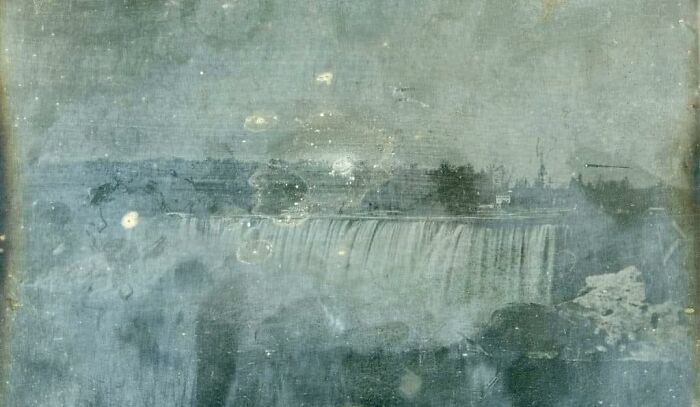
#18. A fleet of Concordes at London Heathrow Airport, 1986
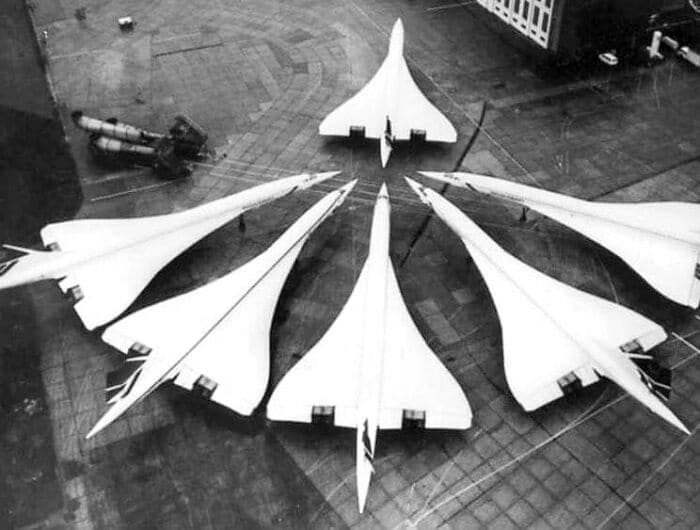
#19. One of the most evocative photos.
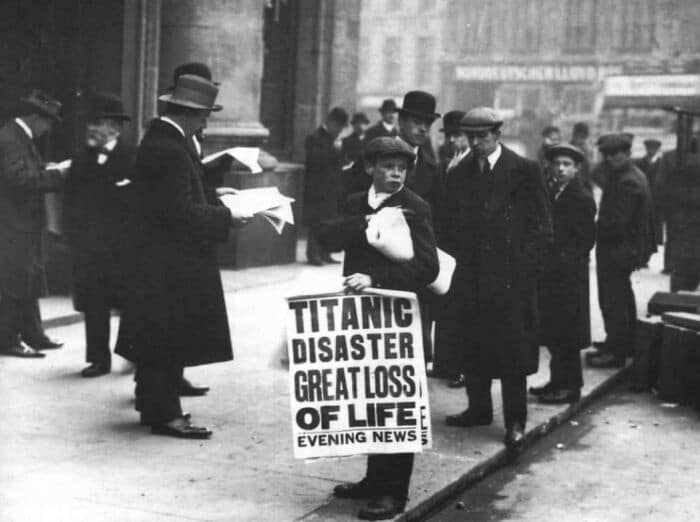
#20. Mt St Helens erupeted 40 years ago today.
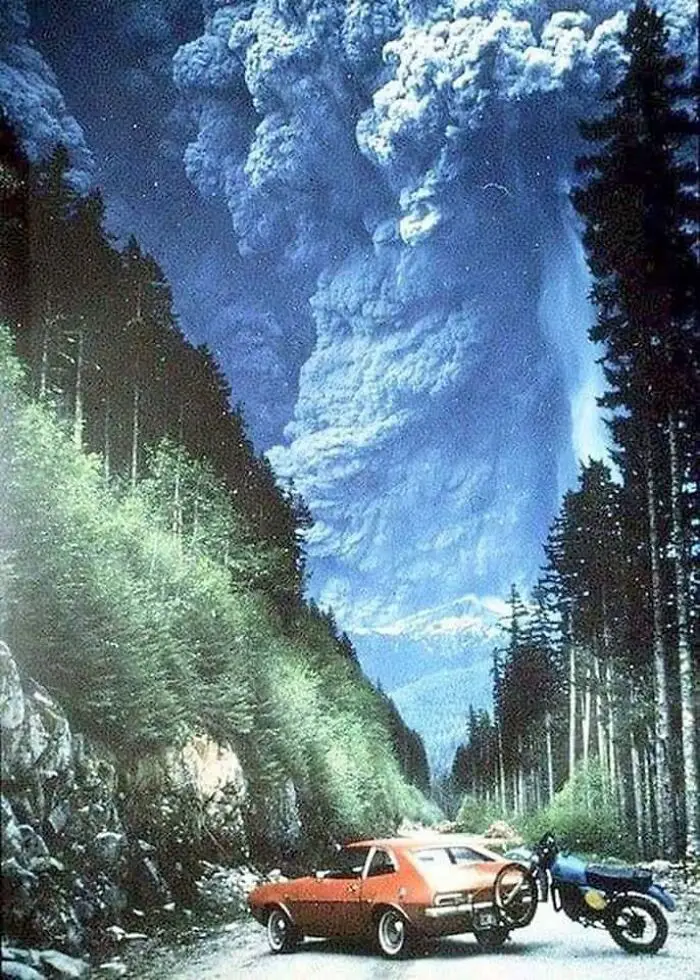
The photo was taken by Richard Lasher who did survive. Nobody knows what happened to the Pinto or the Yamaha.
#21. Two widows gathered for Martin Luther King’s funeral, April 1968
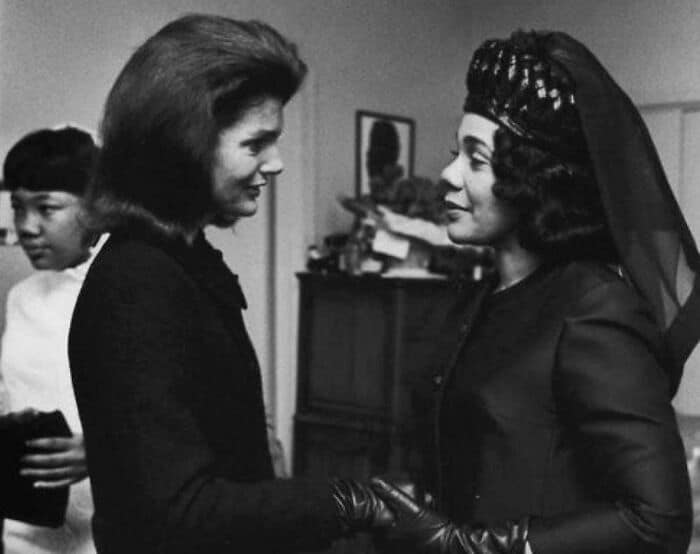
#22. Alexandre Gustave Eiffel, left, explores the completed tower with a friend, 1889.
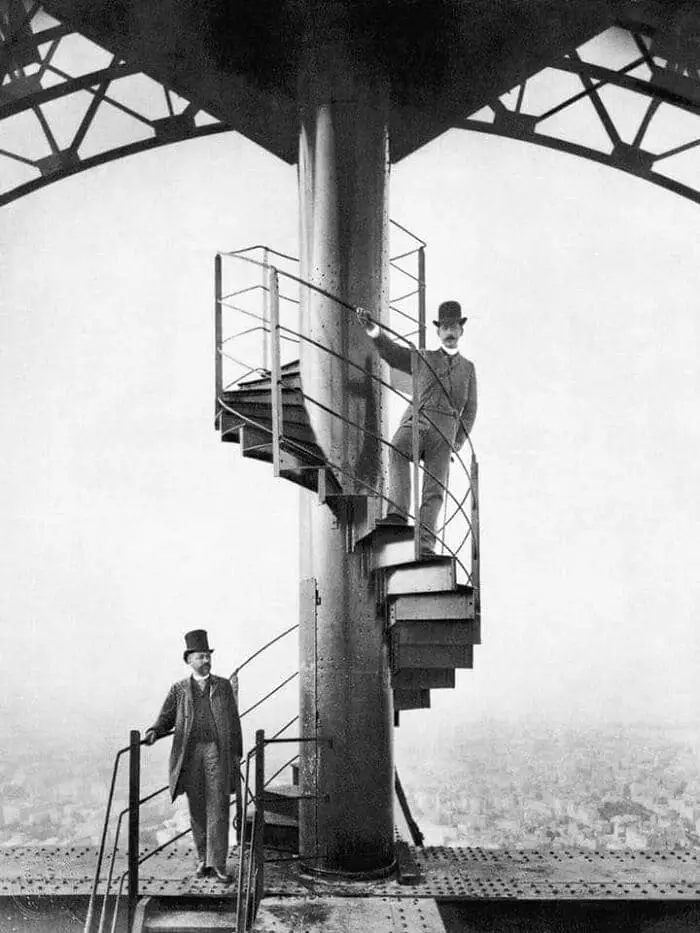
#23. Aircraft tester George Aird barely escapes death by launching sideways from his plane (1962)
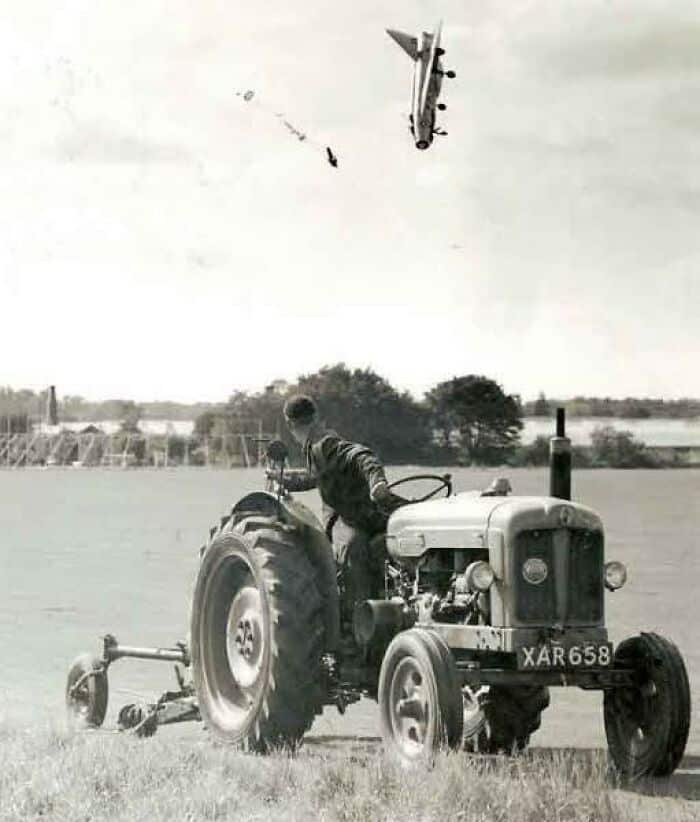
Aird fell through a nursery on his way down, breaking both legs.
#24. This is probably the most famous photograph of Józef Kudelka
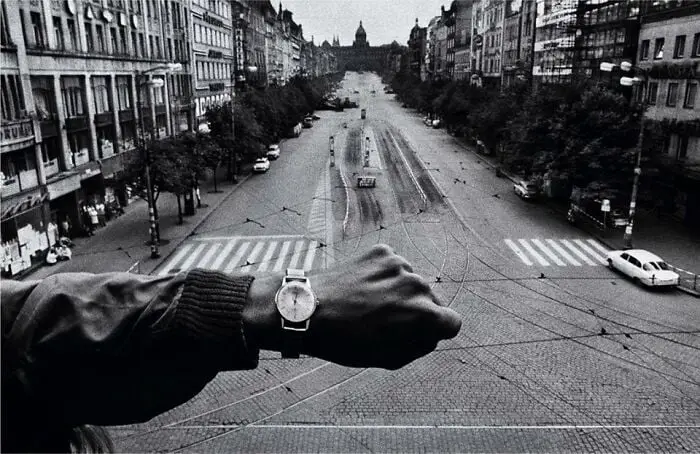
Until 1968, the photographer did not photograph news events. Everything changed on the night of August 21. In the midst of the turmoil of the Soviet invasion, he took a series of photographs that were miraculously smuggled out of Czechoslovakia. In this image, his hand shows the time when Soviet tanks began to invade Prague.
#25. Swinging London, late 60s.
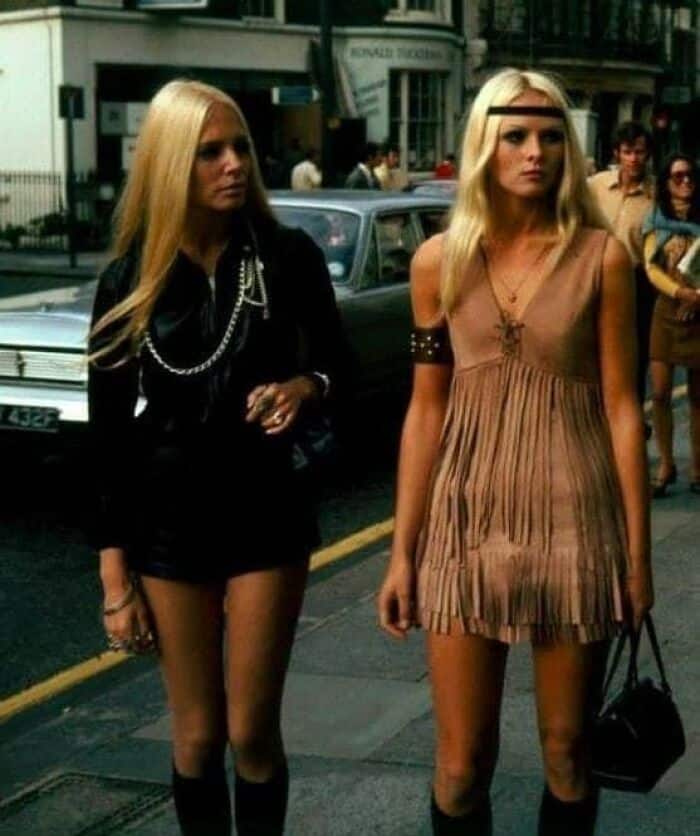
#26. Chicago. August 4, 1948
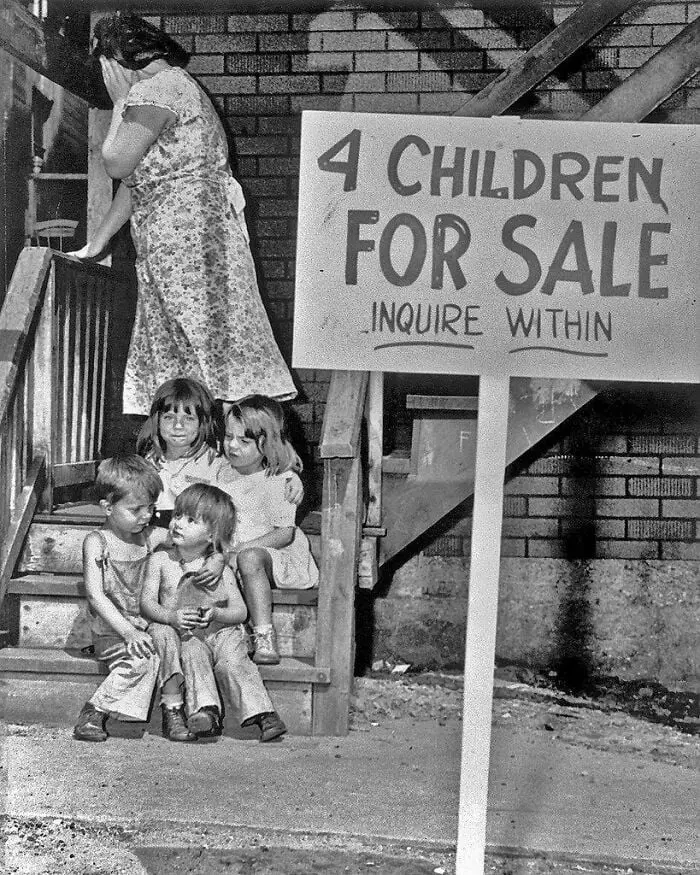
This photo originally published in the Vidette-Messenger of Valparaiso, IN, tells a tragically heart-breaking, yet all too familiar story about Chalifoux family and the trials and tribulations surrounding poverty.
Well … that’s what the original caption wanted the reader to think. Facing eviction from their apartment, the jobless couple decided to sell their four children ranging in age from two to six. The mother posted a sign in the front yard and waited for buyers while Lana, Rae Ann, Milton, and Sue Ellen just sat on the steps oblivious that their fate was about to spiral out of control.
According to several articles I read regarding this photo, It seems no one really knew whether the sign was up there for days, or years or just long enough for the camera to take its shot. Several family members even stated that the mother was paid to stage the whole thing.
Regardless, within days newspapers across the country picked up the photo and job offers and financial help poured in. But that didn’t change the inevitable. Rae Ann was sold and sexually abused. Milton went to live on a farm with John and Ruth Zoeteman who beat him daily, tied him up and worked as a slave.
Lana’s life remained a mystery to the other siblings. She died in 1998 of cancer. Unlike the others, Sue Ellen was adopted legitimately and seemed to fare better than the others. Years later and well into their sixties and seventies, sisters Rae Ann and Sue Ellen found each other and were telling their version about what actually happened to them.
“I was sold for $2.00 so my mother could have bingo money,” claimed Rae Ann, “and because the man she was dating wanted nothing to do us,” Sue Ellen’s response about her birth mother, “she needs to be in hell burning.”
#27. Unpacking the Statue of Liberty. New York City. 1885
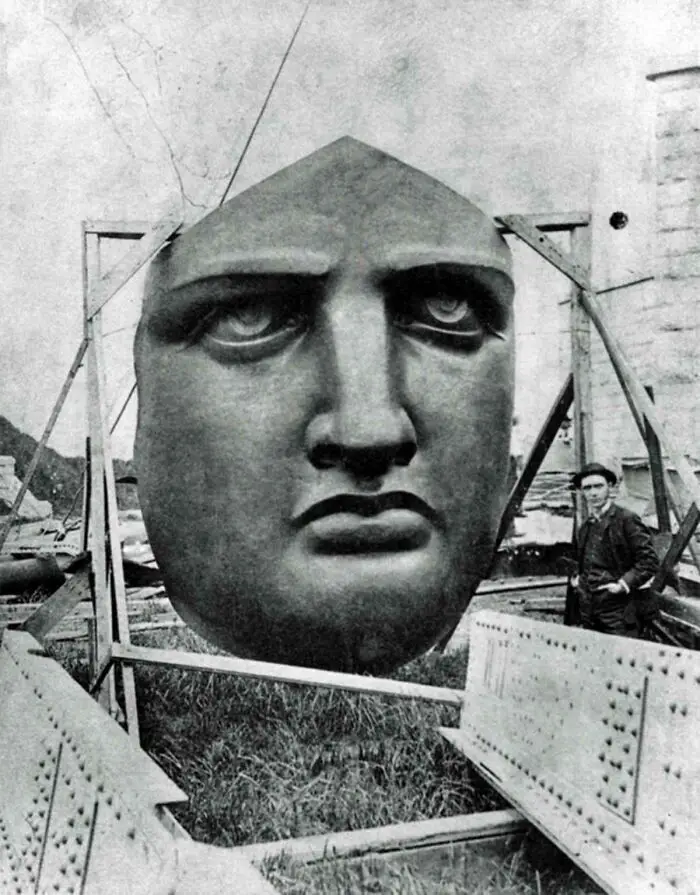
The colossal assemblage of 350 Neoclassical pieces, gifted by the people of France, took workers four months to put together.
#28. Teenagers of the 50th years of the last century. Feel the difference.
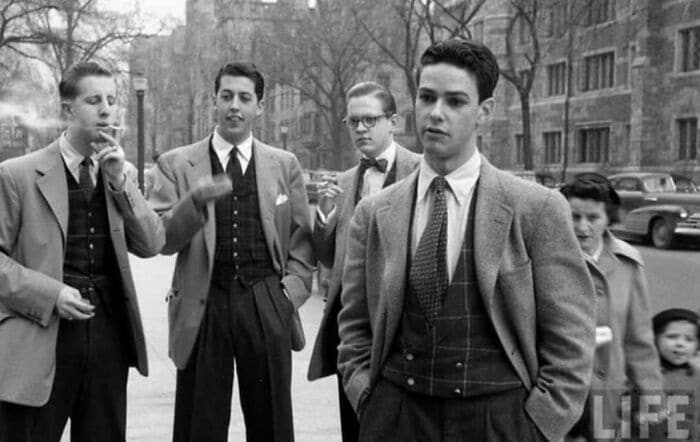
#29. Native Americans photographed by, Roland W. Reed between 1907 and 1913
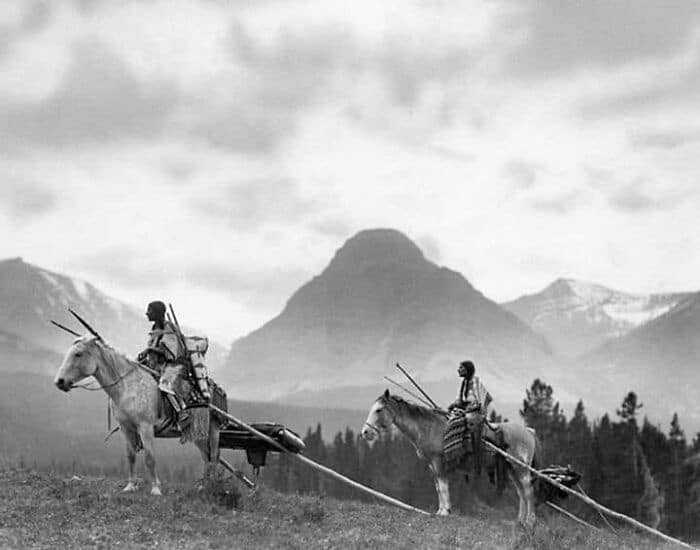
#30. Nationaal Archief 1951.
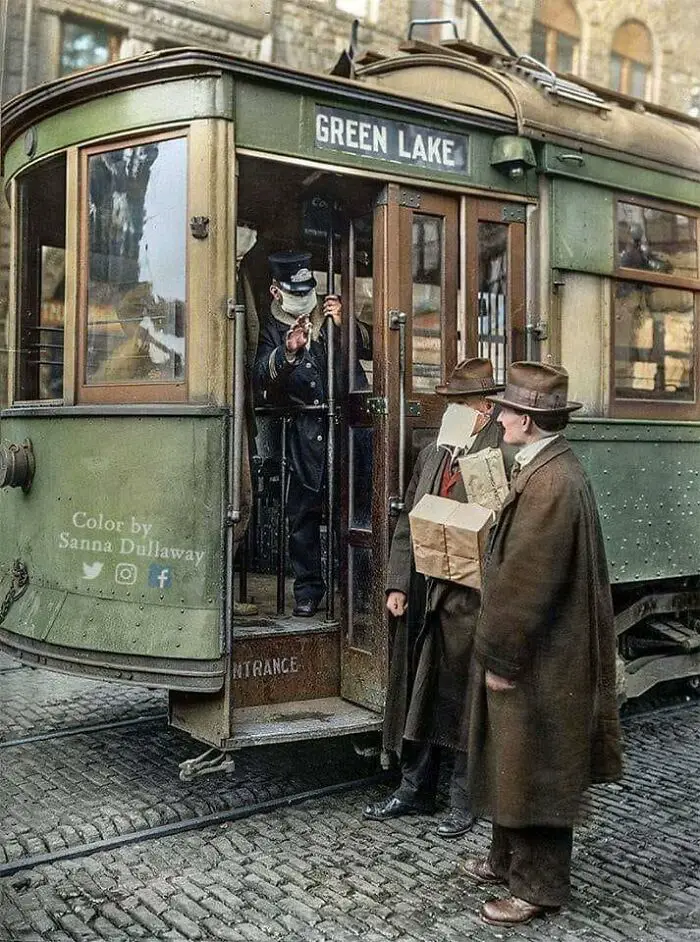
A streetcar conductor in Seattle not allowing passengers aboard without a mask during the Spanish Flu pandemic, 1918.
#31. The Picture shows a photographer taking a Picture of New-York City streets, 1925.
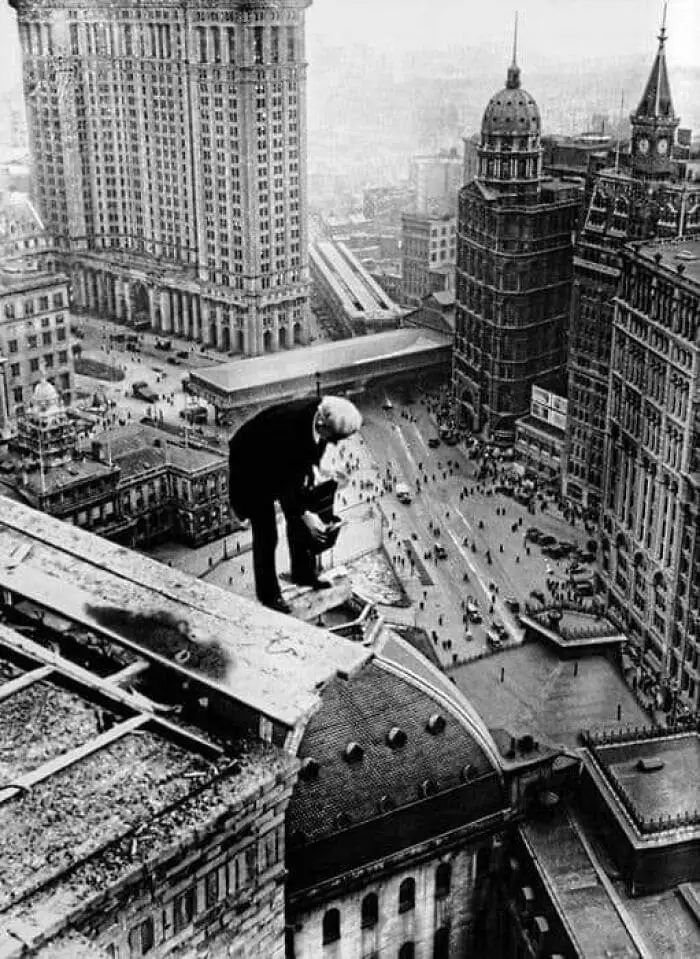
#32. View of the St-Lawrence River from Québec City in the 1800’s
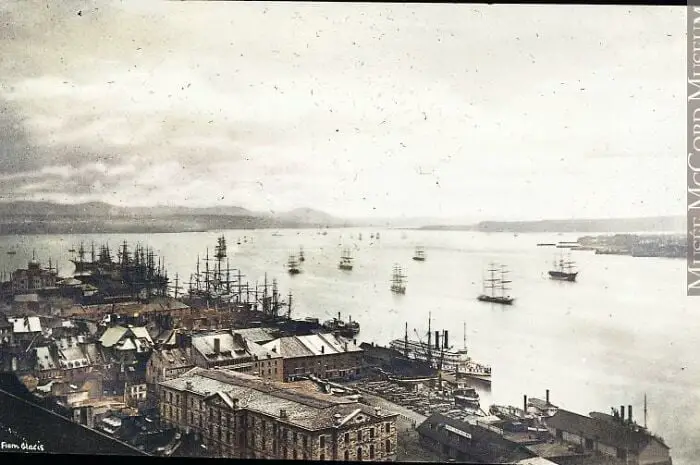
#33. A woman tests a stroller intended to be resistant to gas attacks in Hextable , England in 1938, not long before the outbreak of World War II
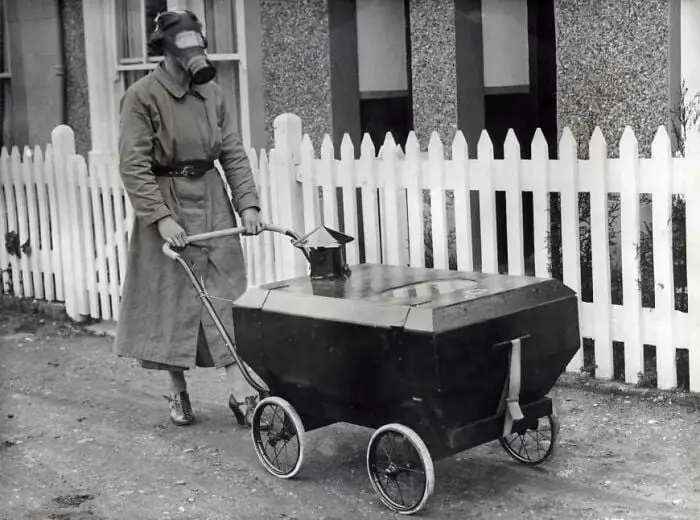
#34. Beach Volleyball, Venice Beach CA June 1934
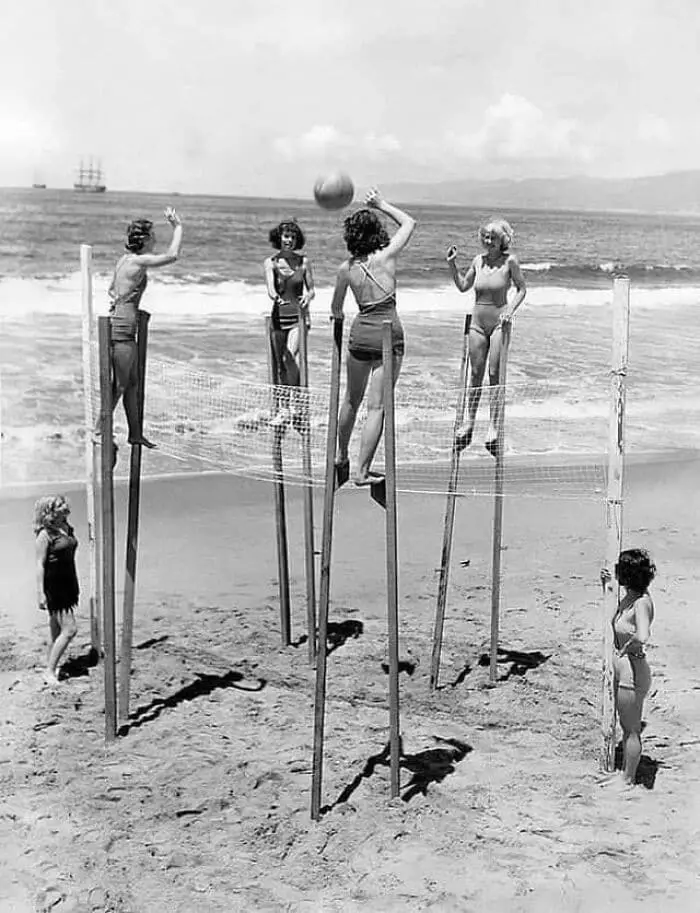
#35. Milano 1972
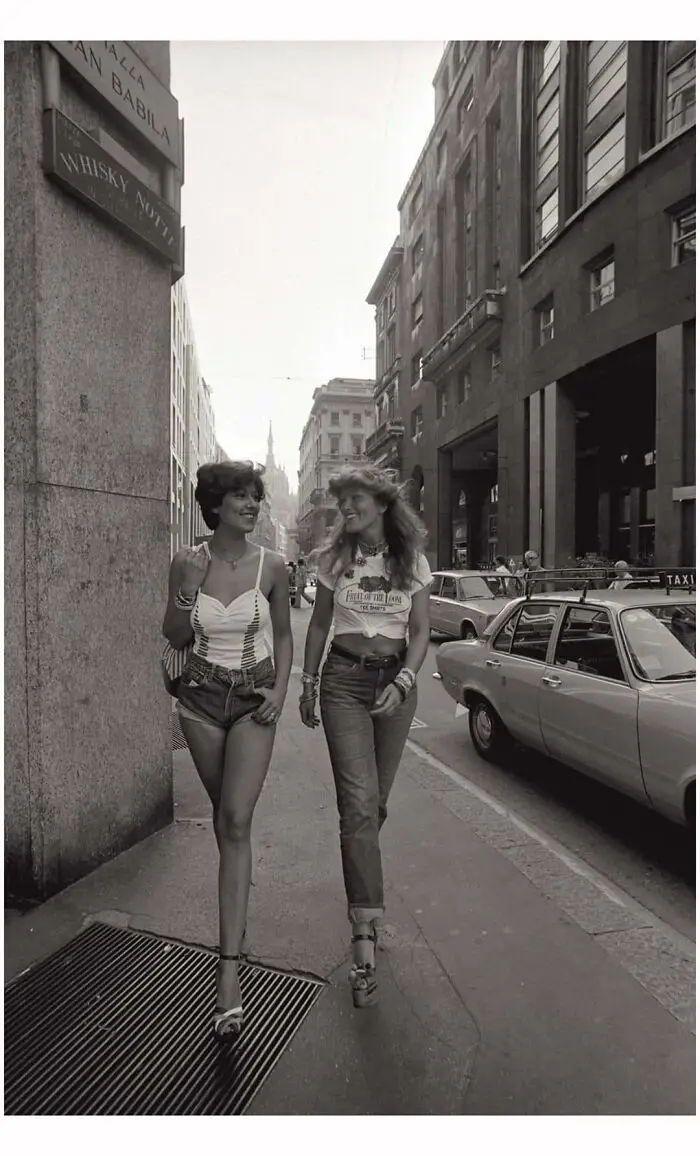
#36. Signing off, 1934
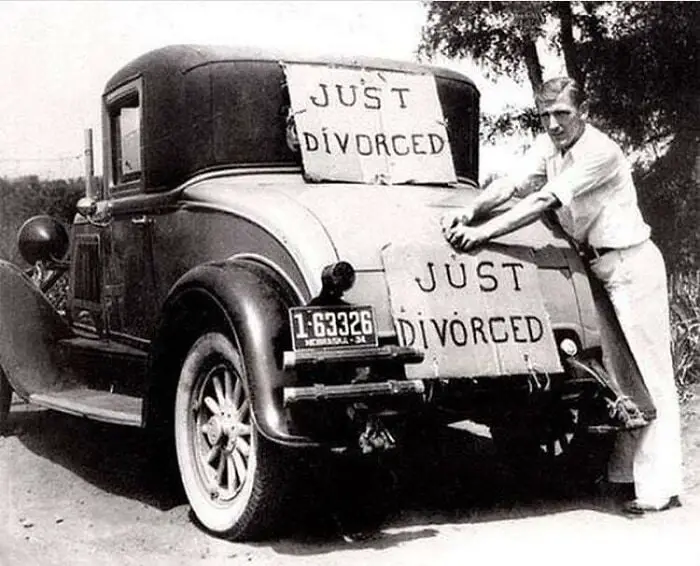
#37. Morning walk on the Brooklyn bridge, New-York, 1905
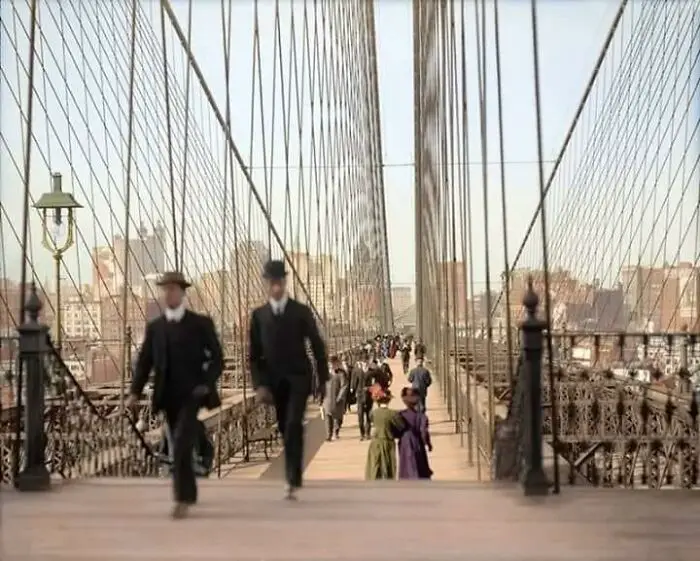
#38. England – France 2-0 World Cup 1920 Dick Kerr Ladies Football Team , Preston , 28 May 1920.
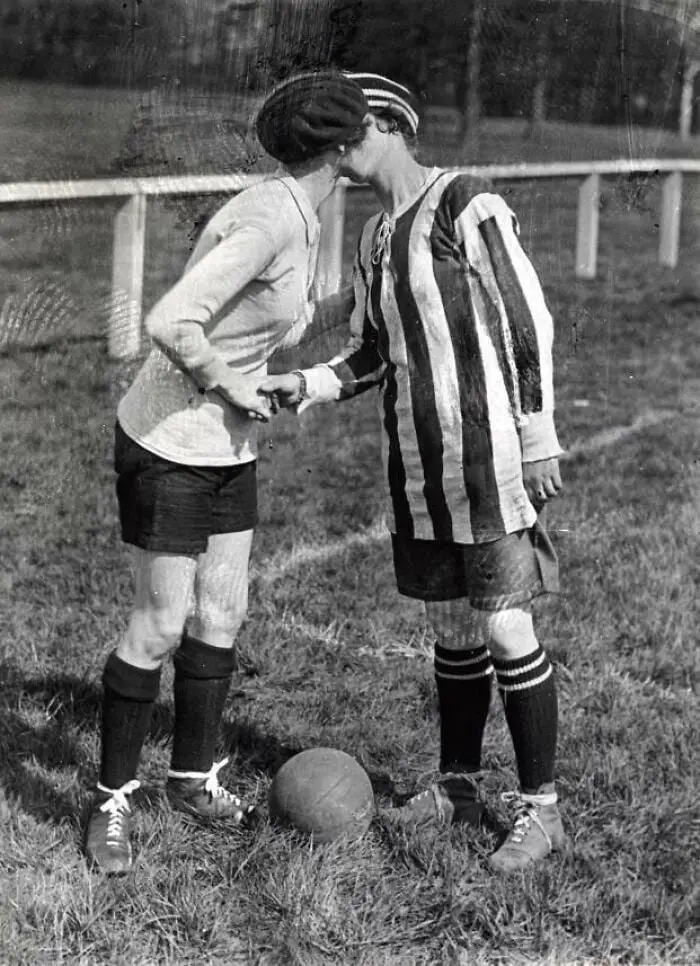
The team captains of England and France exchange a goodwill kiss before the game in Preston .
Photo ~ Het Leven / Fotograaf onbeken
#39. Manhattan, VW with Rolls Royce grille, New york City 1976
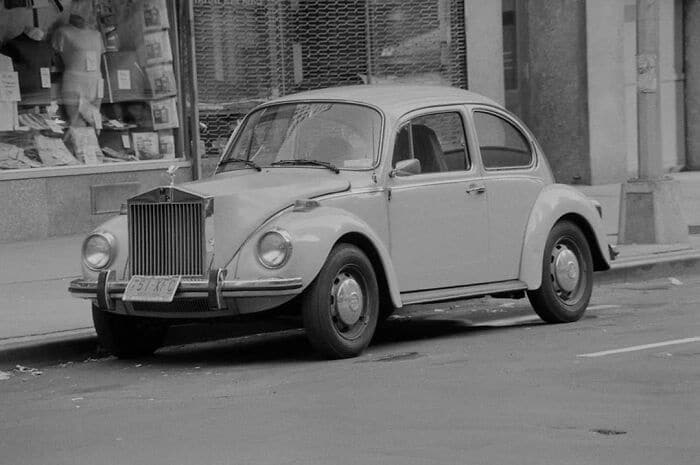
#40. The U.S. military inspects a collection of works of art collected by Hermann Goering, 1945
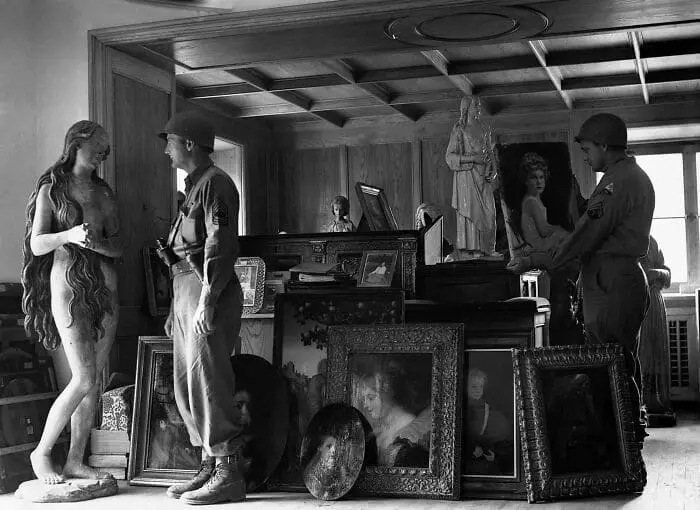
#41. Italian Alps, World War I, 1915
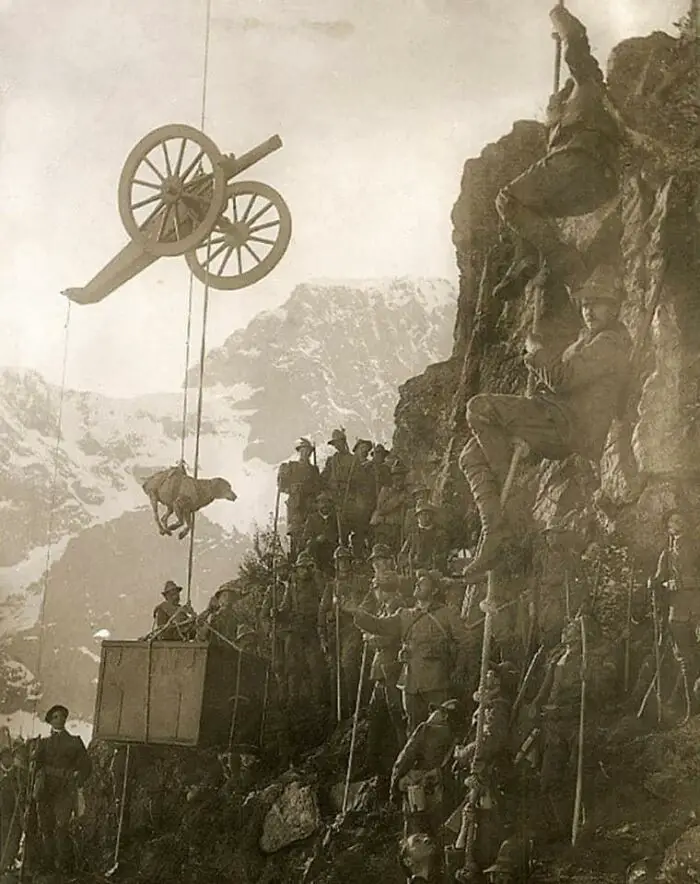
Italian troops raise a gun, a dog and a soldier on a mountain.
#42. Life in the Texas Dust Bowl, 1935.
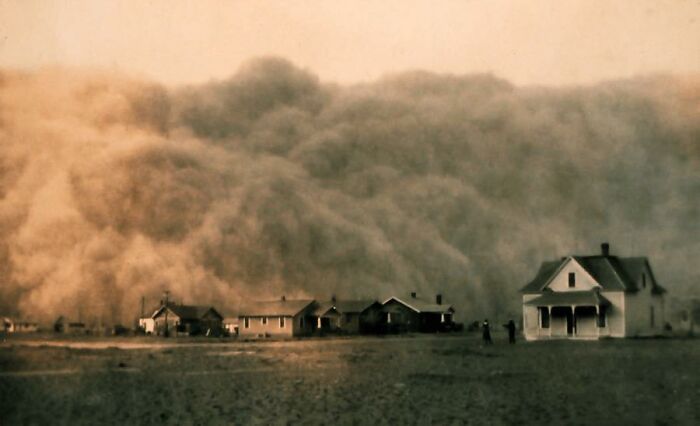
A dust storm gets ready to engulf everything in its path.
#43. Patients being treated in an Army Hospital during the 1918 Spanish Flu pandemic.
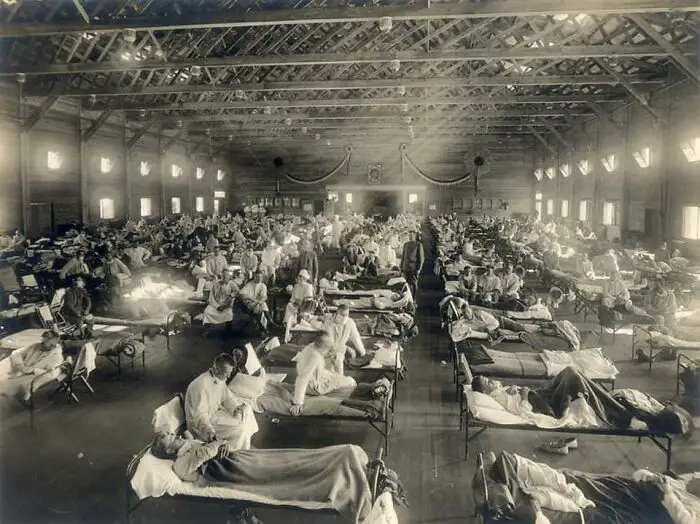
#44. Manhattan New-York , ca 1917.
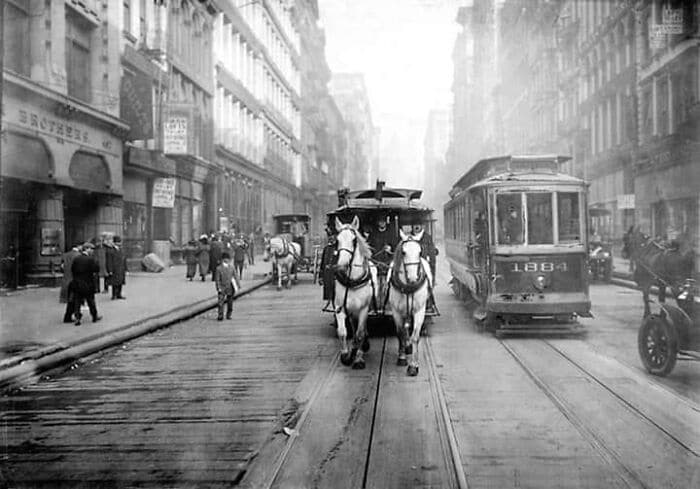
A horse-car and a modern tram side by side
#45. Born Free, 1966 George Adamson (Bill Travers) and his wife, Joy (Virginia McKenna)
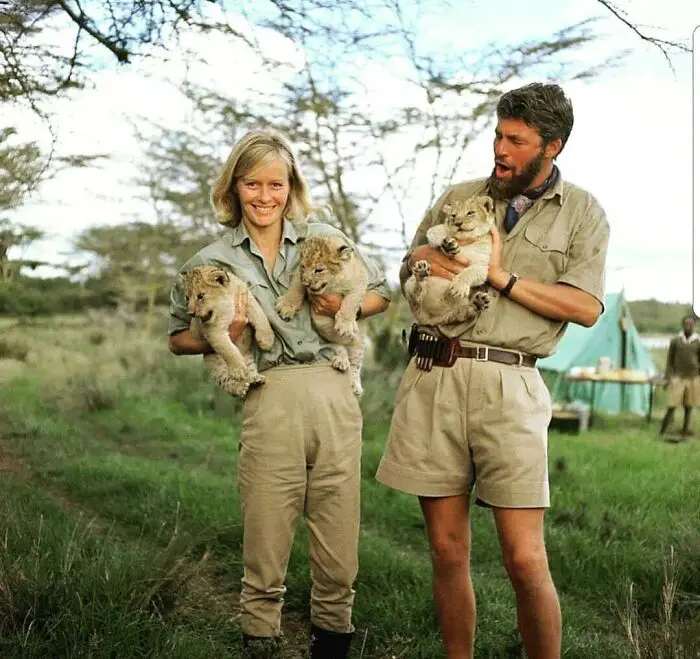
#46. German WWII POWs harvesting grapes for the Widmer Winery in Naples, NY.
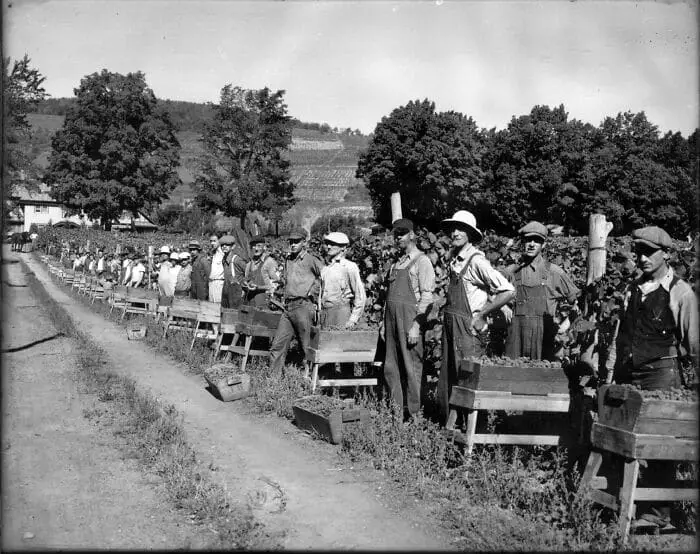
Every state housed prisoners but most camps were built in warm weather climes to save on barracks heating costs.
#47. “Smokey” Buchanan from the West Palm Beach police force
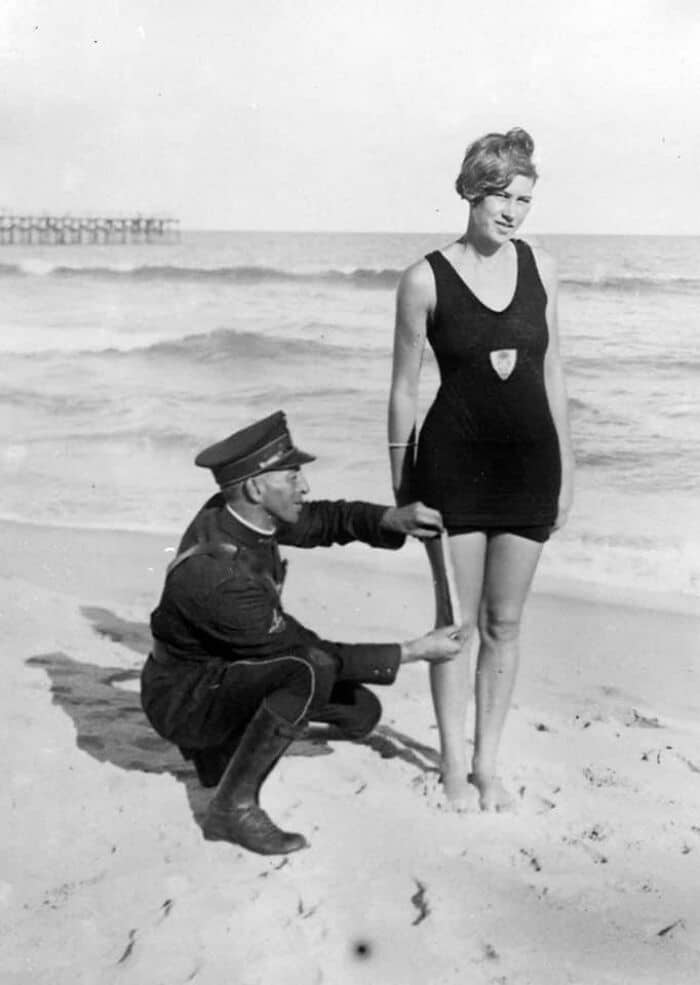
“Smokey” Buchanan from the West Palm Beach police force, measuring the bathing suit of Betty Fringle on Palm Beach, to ensure that it conforms with regulations introduced by the beach censors. 1925.
#48. Marble Arch Tube Station, 1900
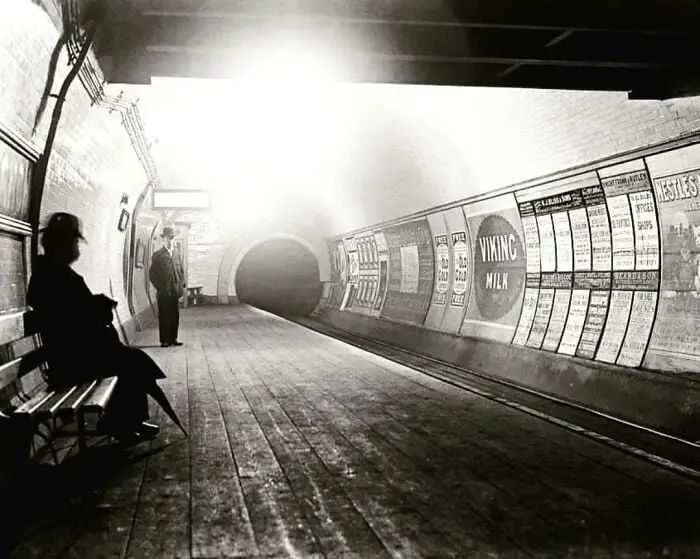
#49. A heartwarmingly lovely photo of a young woman writing to her sailor.
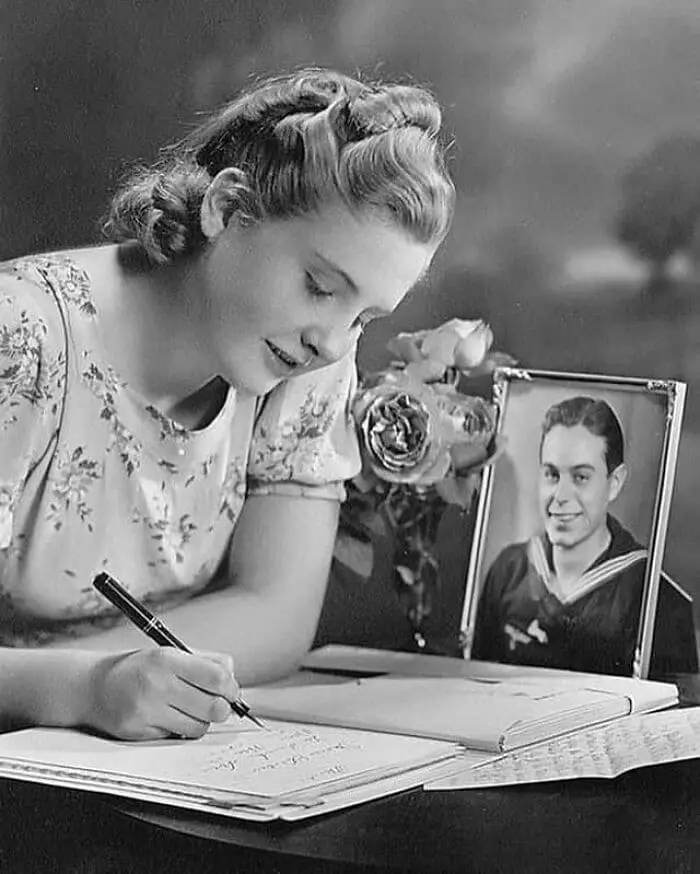
#50. A group of kids had arranged to care and feed the dog after the owner had died, England 1936.
